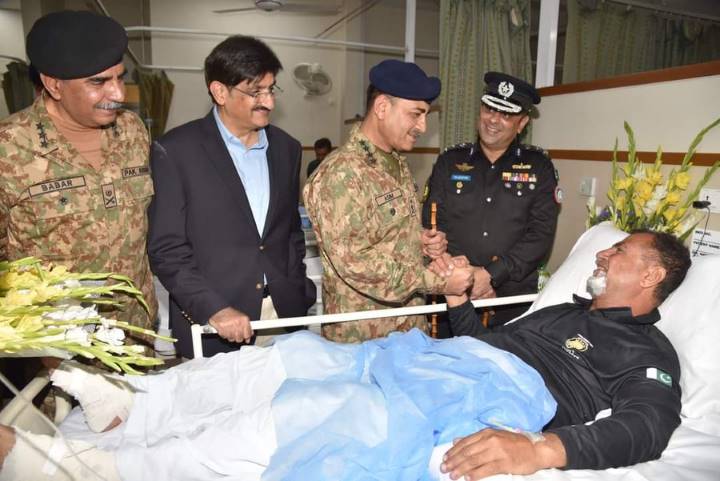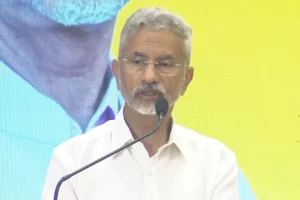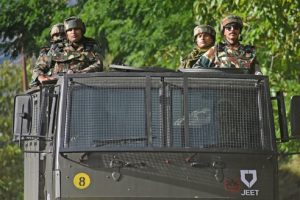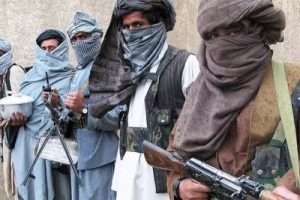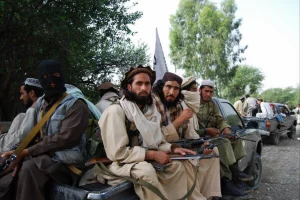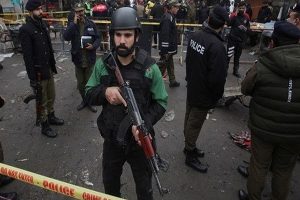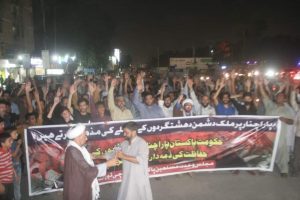Pakistani investigators looking into the audacious attack on the Karachi Police office by the Tehreek-i-Taliban (TTP) are working on the lines that inside help was provided to the militants. Investigators have not made any headway into the audacious attack on February 17 which killed five and injured 17, mostly security personnel.
The Dawn newspaper reports that “police and other allied agencies appear to be clueless about the mastermind and facilitators of the three militants who barged into the police compound and engaged law-enforcers in a fierce gun battle for hours”.
Th Footage of the terrorist attack in Police Headquarters #Karachi yesterday can be seen. Three terrorists are present with weapons. Video captured from the #CCTV camera on the first floor when the terrorists attacked the police chief's office pic.twitter.com/rlBos76NDv
— Ghulam Abbas Shah (@ghulamabbasshah) February 18, 2023
The newspaper quoted DIG-South Irfan Ali Baloch as saying: “We are looking into the matter from different angles. The point from where the militants cut barbed wire and made an entry was not covered by CCTV cameras”.
This indicates that the attackers were guided by an insider.
The three militants were hugged by two helmet-wearing men on bikes who left the scene before the attack began. The investigators have not been able to identify the third militant.
The Pakistani Chief of the Army Staff (COAS) General Syed Asim Munir visited Karachi, the financial capital of Pakistan, to hold security meetings. He also visited the site of the attack as well as met the injured security personnel.
چیف آف آرمی سٹاف جنرل عاصم منیر نے کراچی پولیس آفس کا دورہ کیا.
وزیر اعلیٰ سندھ مراد علی شاہ، آئی جی پولیس سندھ اور کور کمانڈر کراچی بھی آرمی چیف کے ہمراہ تھے۔
آرمی چیف جنرل عاصم منیر نے ہسپتال میں زخمیوں کی عیادت بھی کی۔#KarachiPoliceOffice #SindhPoliceZindabad pic.twitter.com/IN8l3J1ilh— MUSHARRAF MALIK 🇱🇾 (@malik_musharraf) February 19, 2023
With a spate of attacks across the country by TTP militants, Pakistani security agencies are conducting intelligence-based operations (IBO) to flush out the group. The TTP, also known as Pakistani Taliban, gained in strength and confidence after the Taliban takeover of Afghanistan. It now wants to establish a Sharia government in Islamabad, as has already been achieved in Kabul.
The TTP began its latest wave of attacks after peace talks between the TTP and Islamabad broke down in November 2022. The talks, which began in June 2022, were being mediated by the Afghan Taliban or the Taliban government in Kabul. The peace talks broke after TTP alleged that Pakistan has continued to carry out attacks on its cadre despite the talks.
The death toll of the audacious attack on the #KarachiPoliceOffice (KPO) rose to five on Sunday while a first information report (#FIR) was registered under #terrorism charges against the perpetrators and their facilitators.#karachi #KarachiAttack #KarachiPolice pic.twitter.com/06fxrSrE1v
— Yunus Shah (@Sh0333yunus) February 20, 2023
The TTP has launched attacks on Pakistani security forces in Khyber Pakhtunkhwa, Punjab and Balochistan – bringing violence to an extremely large part of Pakistani territory. By launching these attacks in Punjab, the TTP has challenged the security forces and the political establishment in the heart of the country. Islamabad too has seen violence after a suicide bomber blew himself in January.
The attacks, which have been conducted on police stations and patrol vehicles, have demoralised security personnel. The Peshawar mosque attack at the beginning of February, which killed 101 people, in the high security police lines led to public protests by the police force and their families.
Pakistan is also facing sporadic attacks from the Baloch nationalists. many reports have already noted that the TTP and the Baloch nationalists have established links and the TTP might be supporting the Baloch against Pakistan, despite their differing ideologies.
Speaking at the Munich Security Conference in Germany, Pakistani Foreign Minister Bilawal Bhutto Zardari has said that terrorism can go beyond Pakistan, blaming Afghanistan for the rise in attacks.
Also read: Pakistan atrocities touch new low as abducted Baloch woman is docked as suicide bomber






